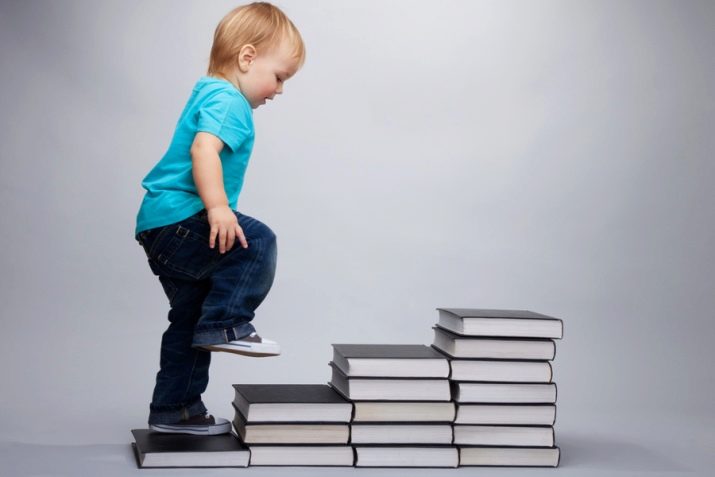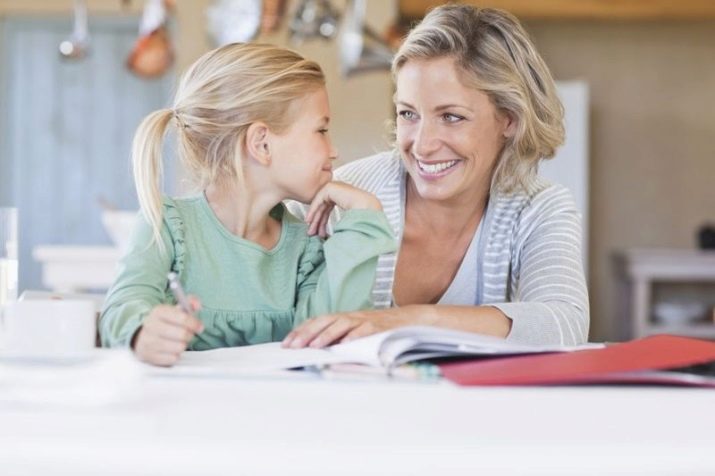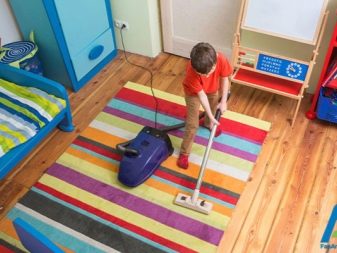Psychology is one of the most interesting and rapidly developing sciences. In it, one can single out a separate industry - child psychology. Today, one of the most important concepts in the framework of child psychology is the child’s self-esteem. In our material we will become more familiar with this concept.
What is self-esteem?
Self-esteem is a subjective assessment of personality. It is formed in childhood and exists throughout our lives. Wherein this characteristic of our personality may change over time.

There are several categories of self-esteem. They are the same for all people: for boys and girls, primary and high school students, children 8, 9, 10 years and older. Consider the types of self-esteem in more detail.
Understated
Children with low self-esteem are not confident in themselves and their decisions, overly shy and cautious, and also need constant approval, support and praise. They are quickly and easily influenced by people around them, and therefore often turn out to be members of bad companies. Low self-esteem can arise due to the fact that teachers, parents and friends constantly make fun of the child and his failures. Accustomed to this attitude, the child is trying to achieve his goals by all possible means.
Children with low self-esteem are obsessed with their mistakes and do not notice successes (especially if children are not praised by relatives).

Overpriced
Overpriced children are arrogant and used to looking down on everyone (to friends, parents, teachers, etc.). They are constantly trying to convince those around them of their impeccability. In this regard, very often children remain single and have no friends.
Such self-esteem may arise in connection with excessive praise. This is especially true for truly talented children who achieve a lot and constantly experience a sense of superiority over other peers.
In two-year-old children with high self-esteem, a complex of excellence “I am the best” is very often developed. A child who considers himself better than others is inclined to exaggerate his dignity and downplay his existing shortcomings.. In the event that he experiences any failure in his endeavors, the child begins to blame the whole world and external circumstances, but never admits his own guilt. In addition, the baby does not accept criticism.

Adequate
Adequate (or positive) self-esteem is fully consistent with the real situation. A child who evaluates himself adequately believes that he is on a par with his peers: not higher and not lower than them. Such a child adequately perceives criticism in his direction, strives for development and self-improvement. He is in a harmonious and stable relationship with himself. Having an adequate level of self-esteem, the child is confident in himself and his actions. He actively and successfully develops in all areas of his life: in studies, hobbies, relationships with his family and people around him.
A competent analysis of the child’s self-esteem is the most important part in his upbringing.
If in the behavior of your child you notice signs of low or high self-esteem, then try to observe the baby more carefully for several days or even weeks. When confirming your guesses, try to talk with the child and solve the problem on your own, if necessary, consult a psychologist.

How to adjust?
If you notice that your child has inadequate self-esteem, then you should help him. So, in order to increase confidence, raise, strengthen or correct the self-esteem of the baby, it is necessary to follow certain recommendations of psychologists. Only in this way will you be able to raise an adult with a positive self-esteem.
- Do not use shortcuts. During a quarrel or conflict, parents tend to give their baby different labels (for example, "lazy person" or "unlucky"). This is strictly prohibited. If a child regularly hears such expressions addressed to him, then he automatically perceives them as true, and unwanted behavior continues to be fixed.
- Do not scold for failure in studies. A deuce for an incorrectly completed exercise in the Russian language or an example in mathematics is not a reason to destroy your child’s self-esteem. Learning is difficult for many children, and your scandals and screams can only further increase the negative. In such situations, you must support and motivate your child.
- Let's have the opportunity to express our opinion. The child has the right to an opinion both in everyday life and during quarrels. Do not try to put pressure on the baby. In addition, always listen to the excuses and point of view of your baby.
- Talk with your baby constantly. On a regular basis, learn about what the child thinks and feels, what is happening in his life. In no case do not avoid complex and delicate topics. Answer honestly and honestly questions from your child.
- Praise the baby. Very often, parents who are afraid to develop an overestimated child, avoid words of praise and support. This approach can lead to the development of the opposite phenomenon - too low self-esteem.
- Use installation words. Every day, phrases should be said in your house that make it clear to the baby that at home he is loved and desired, he is always safe, he will be listened to and supported. These phrases include: “we understand you,” “we will always protect you,” “we trust you,” etc.
- Give the child tasks. In order for the baby to feel a sense of accomplishment, a sense of completion, trust him to perform small tasks at home. For example, make him responsible for cleaning his room or for feeding a cat. Control the execution of tasks as discreetly as possible, then the child will feel an independent and self-sufficient person.
- Teach that failure is part of life. You should not ignore the losses and mistakes of the baby. Explain to him that every failure is a new experience, as well as an opportunity to learn a valuable lesson.
- Create a harmonious home environment. It is no secret that children who grow up in a family where they constantly scandal, curse and do not respect each other's interests, tend to have inadequate self-esteem. Therefore, in your home you must create the most favorable and harmonious environment where the child will feel good.
- Develop your baby's talents. If you notice that your child draws all his free time, send him to an art school. If the baby shows a desire to sing or dance - take him to the appropriate circle. Try to comprehensively develop the personality of your child, focus on his strengths and skills.


At the same time, you should approach the development of your baby’s self-esteem with all seriousness and attention. At the same time, do not forget to show parental love and care. In addition, help your child learn from your positive example.
Parent Mistakes
Parents can destroy children's self-esteem. Due to the fact that the developmental features of the child directly depend on the psychological climate and the situation in the family, psychologists come to the conclusion that often parents are those people who underestimate or, on the contrary, overestimate the child’s self-esteem.
Consider the most common parenting mistakes.
- Focus on the negative. Parents pay close attention to the failures and mistakes of the baby, and any success is taken for granted. In addition, criticizing the child, parents often do not offer help or solutions, which only exacerbates an already negative situation.
- Comparison with other children. Comparing with other children is always a bad idea. At the same time, this applies to both negative and positive examples. Remember that your child is a separate, self-sufficient person.
- Total control. The child must independently perform those tasks that he has already been trained. Do not interfere in such situations and allow the child to make some mistakes on his own. Excessive custody and control leads to the fact that the child begins to think that he does not succeed on his own.
- Public comments. In the event that your child behaved incorrectly, do not publicly scold him or scold him. All conversations should take place without unnecessary witnesses.

By avoiding such mistakes, you help your child form a positive self-esteem and educate a full member of society.
Useful parenting tips
Consider some of the recommendations of psychologists regarding proper parenting.
- Parents should show absolute and unconditional love towards their baby. Think of the baby as he is - with all its strengths and weaknesses.
- Focus on the strengths of the child and on his successes, and from each failure help to draw a lesson for the future. Encourage your child in all his undertakings.
- Strive to develop different abilities and talents in the baby. However, these skills should not be practical.
- Always give your baby a choice - this forms his ability to make independent decisions and bear responsibility for them. Thus you form a mature and self-sufficient person.
- Teach your child to solve their problems on their own.
- Develop a sense of tolerance in your baby. Teach him that he must take care not only of himself, but also of those around him.
- If a child wants to try something new and responsible (for example, he wants to get a dog), then you all difficulties should be explained to himwith which he may encounter (for example, early rise and constant walks with the animal).
- Your personal self-esteem and your attitude to life are also important.. If the baby sees that his parents are pessimistic, constantly complaining and generally dissatisfied with their life, then he will follow the same behavioral patterns. Remember this.

Self-esteem is the most important indicator of the psychological health of a small person. This is a phenomenon that is characteristic of people of all ages, so a schoolboy who is not confident in himself will become an adult who will not be able to achieve his goals and will be constantly disappointed in his life.
The task of parents is to prevent such a scenario of development of events and to notice deviations from the norm in time.




